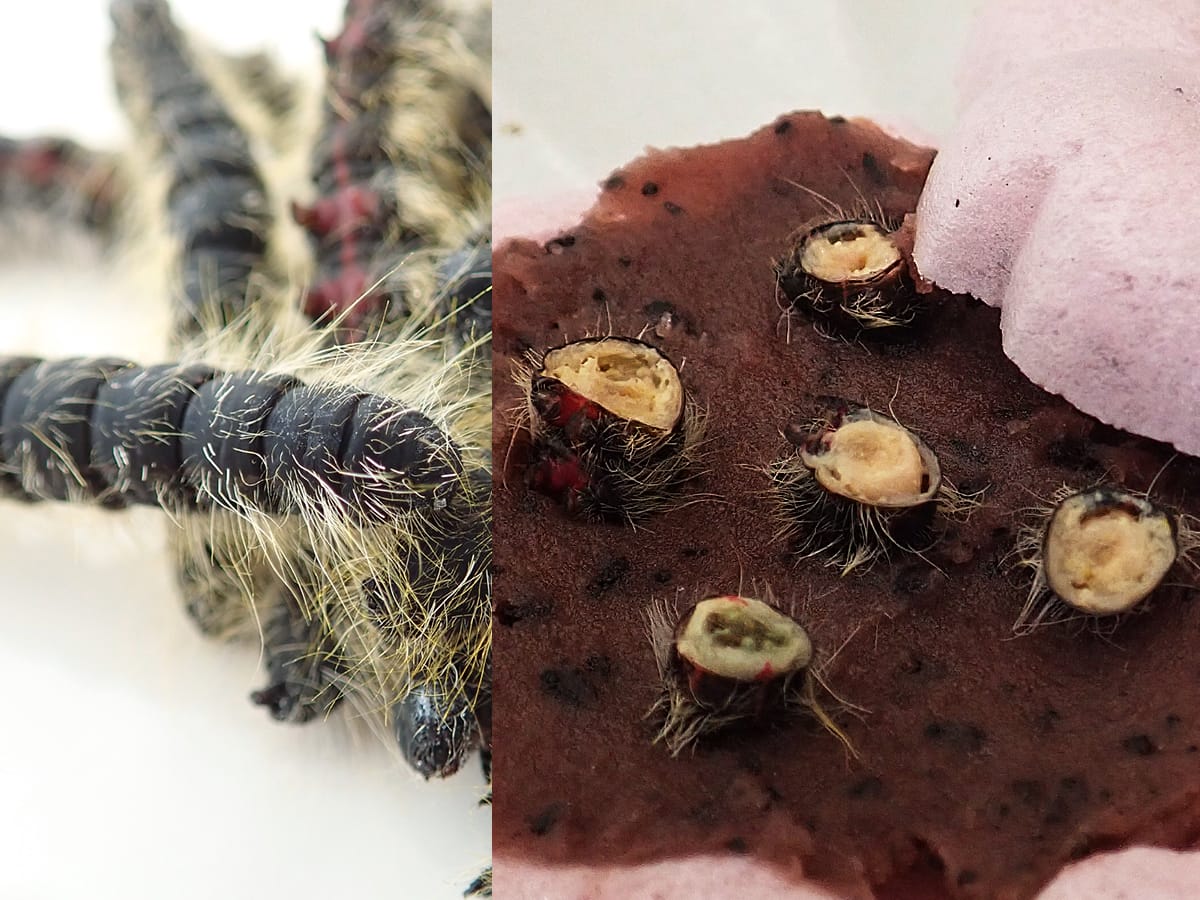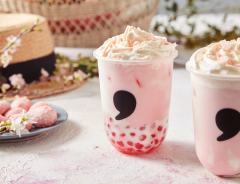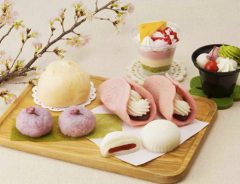
Source: © PR Times, Inc.
Buggalicious in Spring: Caterpillars gorged on sakura leaves are prized for rich sakura flavor
- Tags:
- buff-tip moth / caterpillars / insect food / Sakura / sakurakemushi
Related Article
-

Flowers by NAKED returns to Nijō Castle, lighting up the grounds in all the colours of Spring
-

Japanese Bubble Tea Stand Debuting Real Sakura Tapioca for Cherry Blossom Strawberry Milk Boba
-

Japan’s Adorable Cat-Shaped Bread Slices Return With Sakura Flavor For Cherry Blossom Season
-

Spring Desserts From 7-Eleven Japan Are A Sugary Feast Of Sakura And Strawberries
-

Come and enjoy “Sakura Afternoon Tea” in Nihonbashi, Tokyo
-

Plan Your Sakura-Viewing in Japan With This Blooming Forecast


Insect food in Japan
With dwindling food resources, a swelling population, and a growing focus on environmental sustainability, the global insect food industry continues to thrive. Although a bit late to the game, Japan is also showing interest in the edible bug market.
Traditionally, insects have had a place in Japanese cuisine. In Gunma, Nagano, Gifu and Miyazaki Prefectures, for example, there is a long tradition of eating bee larvae, locust and stonefly larvae in the countryside, all of which are also locally canned and sold to this day. However, for many urban-dwelling Japanese, insects are still an unusual food source, and one which will take a bit of getting used to.
A taste of Spring
Although we're still in the middle of winter, many people in Japan are already looking forward to enjoying the beautiful sight of the sakura trees, a harbinger of Spring. This year, it looks like those eagerly anticipated pastel pink blossoms will be seen earlier than usual.
But sakura isn't only a visual feast. In addition to sakura-flavored snacks and ice cream, the real thing is also used in traditional sweets. For example, brined sakura petals are an attractive and relatively common flavor accent in wagashi, and sakura mochi cakes are wrapped in pickled sakura leaves, which imparts a delicate sakura flavor to the mochi inside. Some people eat the leaves, but they are usually discarded.
And yet, for the buff-tip moth (Phalera flavescens) (known in Japanese as 桜毛虫 sakurakemushi, or "sakura caterpillar"), the leaves are the tastiest part!
Young buff-tip moth caterpillars feasting on sakura leaves. | © PR Times, Inc.
From August to September, they can really eat a prodigious amount of them in a short period of time, leaving the sakura trees looking rather mangy and the road littered with droppings. Moreover, since many Japanese people are repulsed by their appearance, they are often treated as "unpleasant pests" and exterminated by spraying chemicals.
A sakura tree after the buff-tip moth caterpillars have fed on its leaves | © PR Times, Inc.
Insect food lovers, however, have a different view of the situation. Although they are caterpillars, these bugs are non-toxic, safe to touch, and harmless to humans.
© PR Times, Inc.
And at 4 to 5 cm when fully mature, they're quite sizeable, chewy, packed with umami, and prized for their rich sakura flavor which comes from gorging on all those leaves!
© PR Times, Inc.
© PR Times, Inc.
The folks at Bugsfarm.jp are now offering these delicious sakura-flavored critters on their online store for the price of 2,500 JPY + tax for a bag of 10. They'll arrive fresh frozen, and you should keep them in the freezer until you're ready to cook them and add them into dishes. If you're not sure how to use them, here are a few ideas:
Sakurakemushi Karintō
© PR Times, Inc.
Karintō かりんとう is a popular Japanese sweet made of flour, yeast, and brown sugar, then fried. This variation uses a combination of crushed sakurakemushi blended with flour and sugar-coated whole sakurakemushi.
Sakurakemushi Jam
© PR Times, Inc.
This jam uses cross-sectional slices of sakurakemushi and their droppings.
Sakurakemushi monaka
© PR Times, Inc.
Monaka 最中 is a traditional Japanese sweet made of an (azuki red bean paste) sandwiched between two thin crisp wafers made from mochi. In this variant, the an contains cross-sectional slices of sakurakemushi and their droppings.
Supplies are limited, so visit their product page now and order yours today! (ships domestically in Japan only).